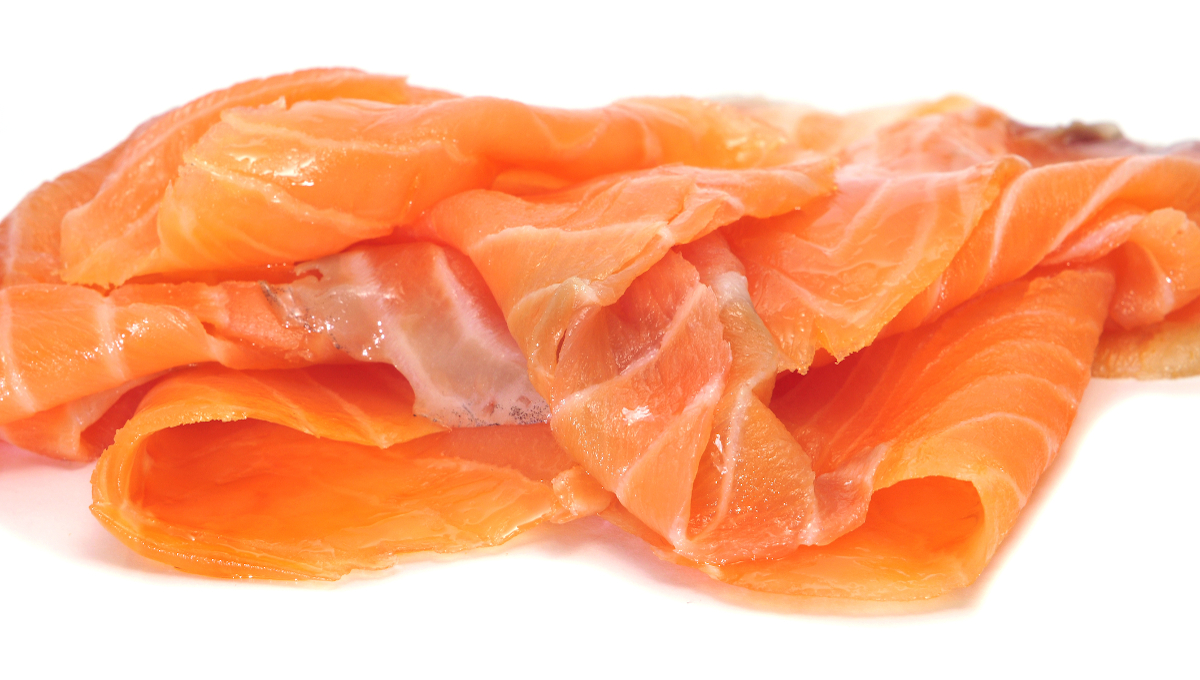More than 20 Listeria outbreaks have been linked to salmon products in Germany in the space of a decade, according to a study.
Researchers identified 22 listeriosis outbreaks between 2010 and 2021 that were likely associated with eating smoked and graved salmon products. Many of them also affected people in other countries. Eight outbreaks include cases in 2021 and are assumed to be ongoing.
In Germany, 228 patients were identified. Of 50 deaths reported, 17 were confirmed to have died from listeriosis. The number of people sick in the outbreaks ranged from two to 37 with a median of eight.
Smoked and graved salmon products contaminated with Listeria monocytogenes pose a serious risk for listeriosis infection in Germany, found the study published in the journal Emerging Microbes and Infections.
Researchers said uncooked salmon products are high risk foods frequently contaminated with Listeria monocytogenes and it was a significant and preventable public health problem.
“To minimize the risk of infection for consumers, food producers need to improve hygiene measures and reduce the entry of pathogens into food processing. Furthermore, susceptible individuals should be better informed of the risk of acquiring listeriosis from consuming smoked and graved salmon products,” according to the research report.
Scale of problem
The study included 166 Listeria monocytogenes isolates from fish and fish processing environments, sampled during official food controls between 2011 and 2021 and 259 clinical isolates from patients.
Within each of the 22 outbreaks, a close genetic relationship was found between the patient Listeria monocytogenes isolates and isolates from salmon products or associated processing equipment.
Researchers said the presence of closely related isolates from food monitoring provides strong microbiological evidence that sources for the outbreaks were smoked and/or graved salmon products.
More than 75 clinical isolates have been identified in 15 other countries that are closely related to isolates from 12 of the outbreaks described. Trade of contaminated salmon products between EU countries is also associated with some of the German outbreaks.
Interviews on food consumption and shopping behavior included 27 patients or their relatives from 13 outbreaks. Of these, 22 reported either eating salmon, smoked or graved salmon or smoked fish.
In a food consumption survey for outbreak investigations in Germany, 24 percent of healthy over 65-year-old respondents stated they had eaten smoked or graved salmon in the two weeks before becoming ill.
Results from patient interviews provide convincing epidemiological evidence and support the causal relationship between listeriosis outbreaks and the consumption of salmon, said researchers.
Risk management required
From 2018 to 2020, 27 percent of all listeriosis cases in Germany with suspected food vehicles were likely caused by smoked or graved salmon products. Considering that for another 1,407 cases no vehicle has been identified, it is reasonable to assume that many of these could also be caused by such products, said researchers.
They added that because of the higher listeriosis risk, the products should not be offered to vulnerable populations, such as immunosuppressed patients and older people in healthcare facilities despite the positive health effects of fish.
Persistent occurrence of cases indicates continuous contamination in production facilities, said researchers.
“Producers of smoked and graved salmon need to become more aware of their food safety responsibilities with regard to Listeria and intensify their efforts to minimize the entry, spread and persistence of the pathogen in the production environment and thus the contamination of products,” according to the report.
(To sign up for a free subscription to Food Safety News, click here.)

